[Editor’s note: This article runs in a new section of The Tyee called ‘What Works: The Business of a Healthy Bioregion,’ where you’ll find profiles of people creating the low-carbon, sustainable economy we need from Alaska to California. Find out more about this project and its funders.]
Spring is Kevin Bradshaw’s favourite time of the year on Vancouver Island’s west coast. He watches as millions of herring congregate close to shore in a mass spawning event. After a long winter, just about every marine species — from humpback whales to birds to crabs — shows up to the feast.
“The abundance is hard to grasp,” Bradshaw said. “The herring spawn is what starts the entire food chain in the spring.”
It’s an important event for Bradshaw beyond the spectacle. Wildlife viewing is a vital aspect of his business, Hello Nature Adventure Tours, a sea kayak and hiking tour company based off a dock at the end of Main Street in Ucluelet, Vancouver Island.
Since he founded the company in 2017, Bradshaw has been searching for a way his business can reinvest into the west coast ecosystem it helps promote and give back to his community and employees.
His chance finally came two years ago, when Tourism Vancouver Island decided to shift its focus from promoting tourism for tourism’s sake to using tourism to make Vancouver Island a better place.
“We’re a social enterprise,” said Anthony Everett, president and CEO of 4VI, formerly Tourism Vancouver Island. “Our intention is to operate as a business and invest what we make as a business back into the place where we live.”
Before 2022, 4VI operated like most destination marketing organizations or tourism boards. Destination BC used provincial funding to set an overall marketing agenda and then funded regional partners to help carry it out. In 2016, Tourism Vancouver Island received approximately $1 million from Destination BC to market the island that’s home to the provincial capital. By partnering with cities and regions across the island, it doubled its budget to about $2 million to attract more visitors.
This was how tourism organizations operated for decades. But the industry was changing. By 2018, surging crowds of visitors were overwhelming destinations, elbowing out locals, trampling sensitive habitats and crowding iconic views all over the world. That year, Collins Dictionary shortlisted the word “overtourism” as the word of the year. Research showed travel was accounting for eight per cent of global greenhouse gas emissions and the industry was forecast to continue growing.
Then the COVID-19 pandemic happened, and travel restrictions plunged the tourism industry into survival mode. In response, Tourism Vancouver Island created the Vancouver Island Coastal Tourism Resiliency Program, which provided funding and support for tourism businesses to help them navigate the suddenly murky waters. The island program was such a success that Destination BC took it provincewide.
“It’s the proudest thing I have ever been a part of,” Everett said. “It was the moment when we realized we could be different.”
This provided a launching pad for Everett and his team. In 2022, they rebranded Tourism Vancouver Island as 4VI and emphasized a renewed focus on regenerative tourism. It’s an evolution of sustainable and ecotourism, and a response to “overtourism,” said Eugene Thomlinson, an expert on responsible tourism and a professor at Royal Roads University in Victoria. The idea is that visitors and their dollars leave the destination in better shape than they found it.
“Tourism becomes a means to do other things,” Thomlinson explained. “It’s a means to protect the environment. It’s a means to bring about social change. It’s a means to ensure that tourism brings more positives than negatives for residents and the benefits stick around.”
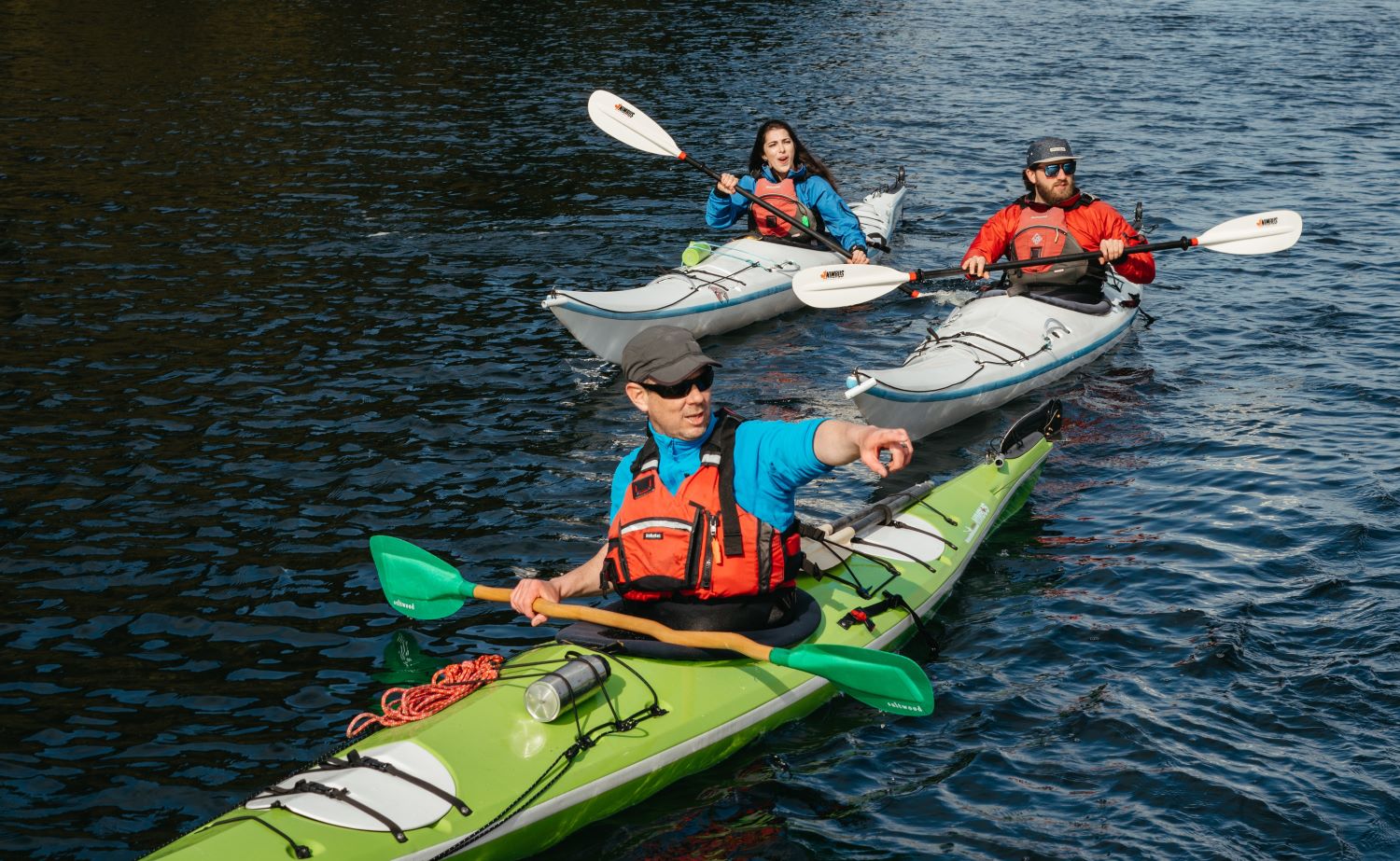
As a business, 4VI is split into three parts. It still manages tourism marketing across Vancouver Island, including sub-regions like the North Island, Comox Valley and Cowichan Valley, as a not-for-profit. But instead of advertisements and promotions, its focus is now on stewardship, particularly Indigenous storytelling and steering visitor behaviour, Everett said.
For example, one of the first things visitors see on the home page of the Vancouver Island website is a link to tips on “Mindful Travel,” such as following the Leave No Trace principles and supporting businesses that are maintaining the coastal ecosystem.
In addition, a new for-profit side of the business is busy advising other tourism organizations and businesses on sustainable and responsible travel. It offers expertise in areas such as grant writing, feasibility studies, storytelling and social media development.
4VI’s third, social enterprise branch then ties the company together by using the money earned from its advisory services to reinvest into the Vancouver Island tourism industry.
One of 4VI’s reinvestments is into studies that analyze representation within the industry itself and hold it accountable for diversity, equity and inclusion.
Joanna Jagger, president of the non-profit WORTH Association, which works to empower women in the tourism industry, authored one of those studies on women in the tourism and hospitality industry.
“Tourism is lagging behind other industries with [diversity, equity and inclusion] initiatives,” Jagger said.
The study was the first of its kind in the province, Jagger said. It found the number of women employed in tourism and hospitality on Vancouver Island declined by 22 per cent between 2019 and 2021, and women were paid 75 cents for every dollar their male counterparts earned.
The report concluded with 10 recommendations, several of which 4VI is helping to fund. Those include enrolling 50 Vancouver Island women in the WORTH Academy to learn tourism leadership skills, providing training to businesses seeking gender pay equality, and funding further research.
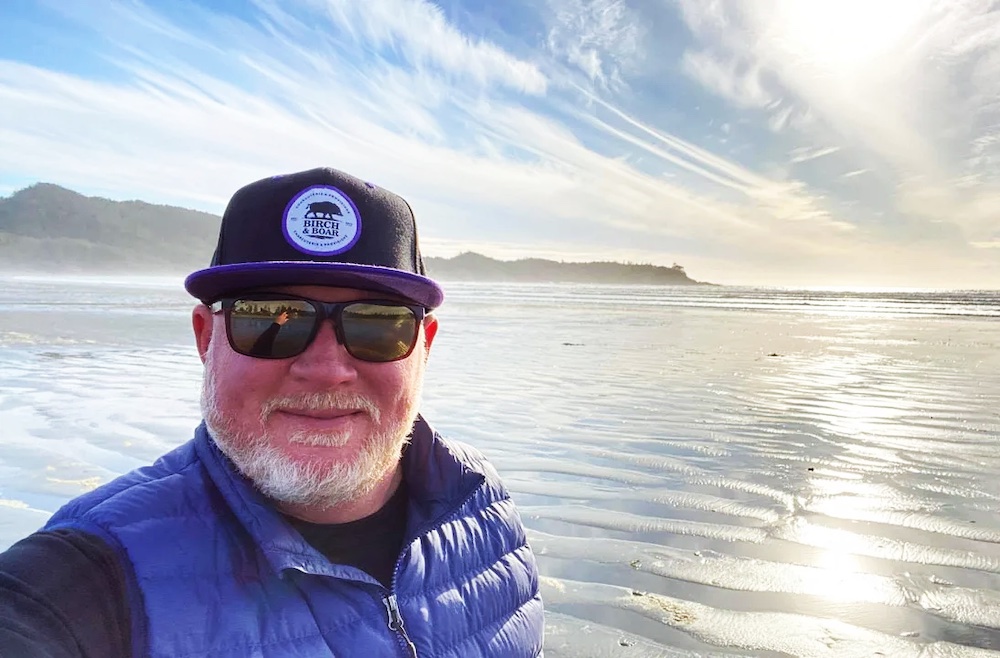
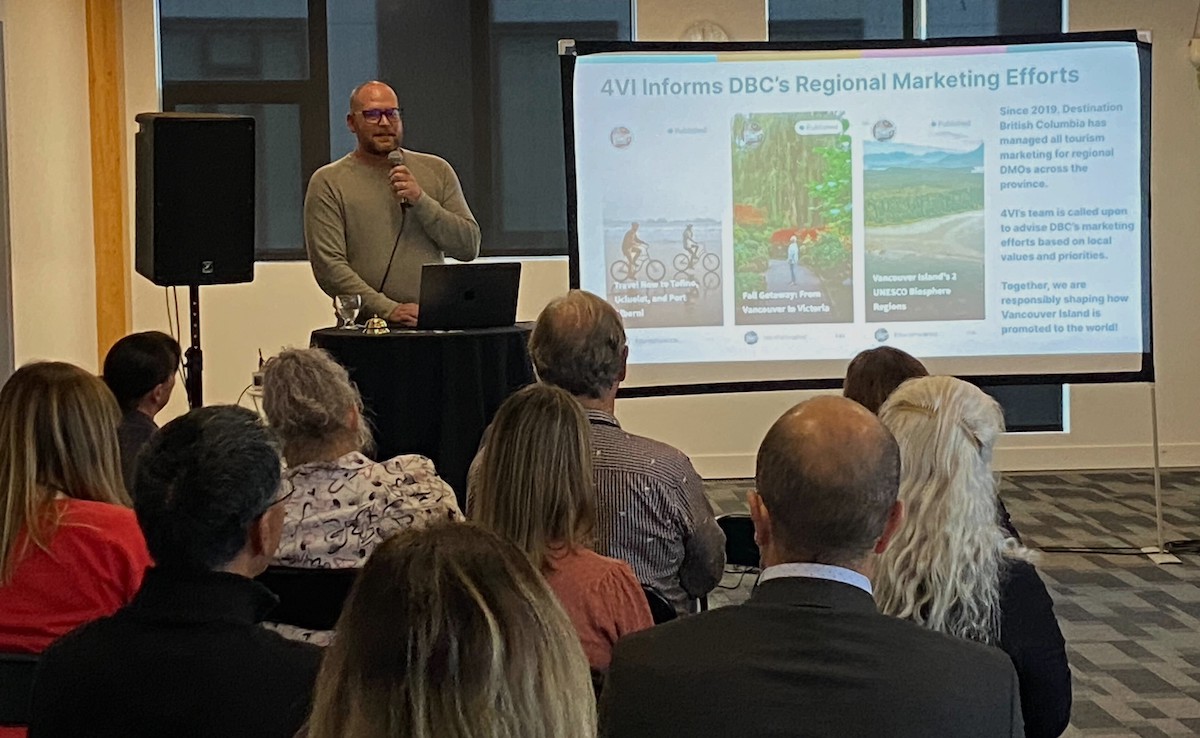
More tangibly, 4VI’s business model has funded infrastructure projects like trail builds, an outhouse and a festival shelter. It’s also working to replicate the Tla-o-qui-aht First Nation’s Tribal Parks Allies program across Vancouver Island.
The First Nation worked with Allied Certifications, a small for-profit company, to develop the program, which encourages businesses operating on Tla-o-qui-aht territory to voluntarily collect a one per cent ecosystem service fee that’s reinvested into the nation. 4VI is currently working with Allied Certifications and 20 other Vancouver Island nations to expand the program.
When Bradshaw began working with 4VI, he received free coaching from the tourism business through a program funded by the federal and provincial governments. Now, he happily pays 4VI to continue working together on additional initiatives he’s eager to pursue.
“4VI really helped us open our eyes,” Bradshaw said. “They looked at every aspect of the business and how it can give back on some level.”
Based on 4VI’s initial recommendations, Bradshaw added 30-minute beach cleanups to his kayaking day trips. Guests have since removed 300 kilograms of marine debris from the Broken Group Islands, and Bradshaw said they rave about the opportunity to give back.
He also donates one per cent of the cost of his multi-day expeditions to Redd Fish Restoration Society, a local non-governmental organization helping to re-establish kelp forests in Barkley Sound, which play a key role in the life cycle of herring. And Bradshaw’s staff are working on developing a citizen science program, which will work with marine science organizations to collect data that’s helpful to ongoing research projects.
Now Bradshaw is contracting 4VI to help him negotiate an agreement with a nearby First Nation whose land he wants to build a base camp on for his tours. 4VI will reinvest 20 per cent of its fees back into the base camp and associated Indigenous programming.
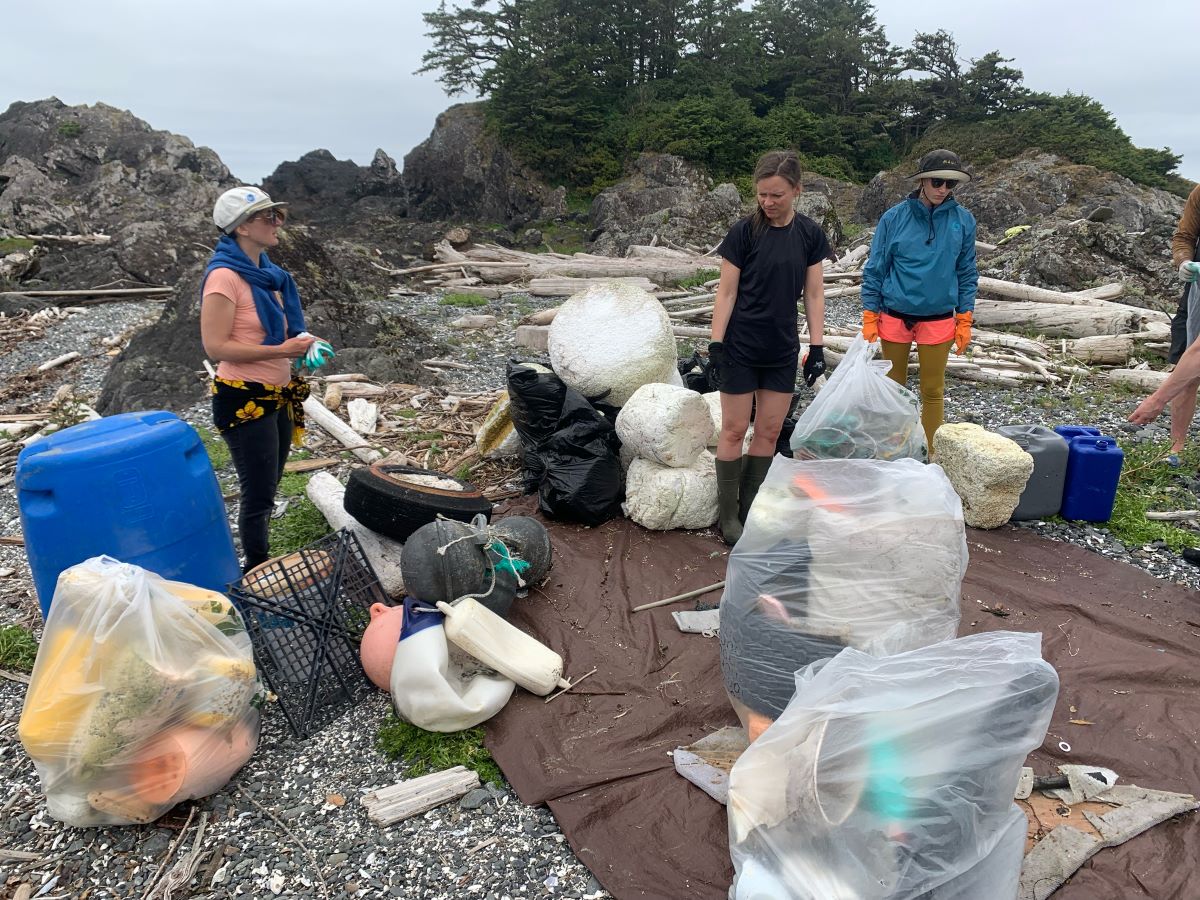
When the Vancouver Island tourism organization first pivoted, Everett admitted, not everyone in the industry liked the idea of investing in, rather than promoting, tourism. But two years later, he said most are now supportive.
Still, Thomlinson said the business model remains unusual.
“4VI is one of the few organizations truly pushing regenerative tourism,” he said.
More common is a subtler shift, from encouraging visitors to come to managing how they behave. In 2017, Bend, Oregon, was one of the first jurisdictions in the world to create a visitor pledge to encourage good behaviour.
Following the COVID-19 pandemic, the Council of the Haida Nation also developed its own pledge, which encourages visitors to donate to a stewardship fund. Its preamble reads, “Haida Gwaii is a spectacular place full of life and culture. Everyone in Haida Territories shares a responsibility to care for the Air, Ocean, Land and People.”
Similarly, in Revelstoke, its destination marketing organization wrote last year in the Revelstoke Mountaineer that it’s “allocating more resources to collecting robust data, supporting community initiatives and advocating for policies that benefit our residents.”
These are all signs that tourism is changing for the better, Thomlinson said. But like any good travelling adventure, he added, there is no regenerative tourism destination — it’s a journey.
Bradshaw said he has plans to continue growing the ways in which Hello Nature Adventure Tours can benefit Ucluelet and the west coast ecosystem.
At 4VI, Everett has even bigger goals. Within five years he wants the organization to have a measurable impact on climate action and gender equality within tourism. And he wants to be investing millions of dollars into making Vancouver Island better for visitors and residents.
“People are going to keep travelling,” he said. “So, we have to keep figuring out how to do travel differently.” ![]()
Read more: Local Economy, Travel, Environment




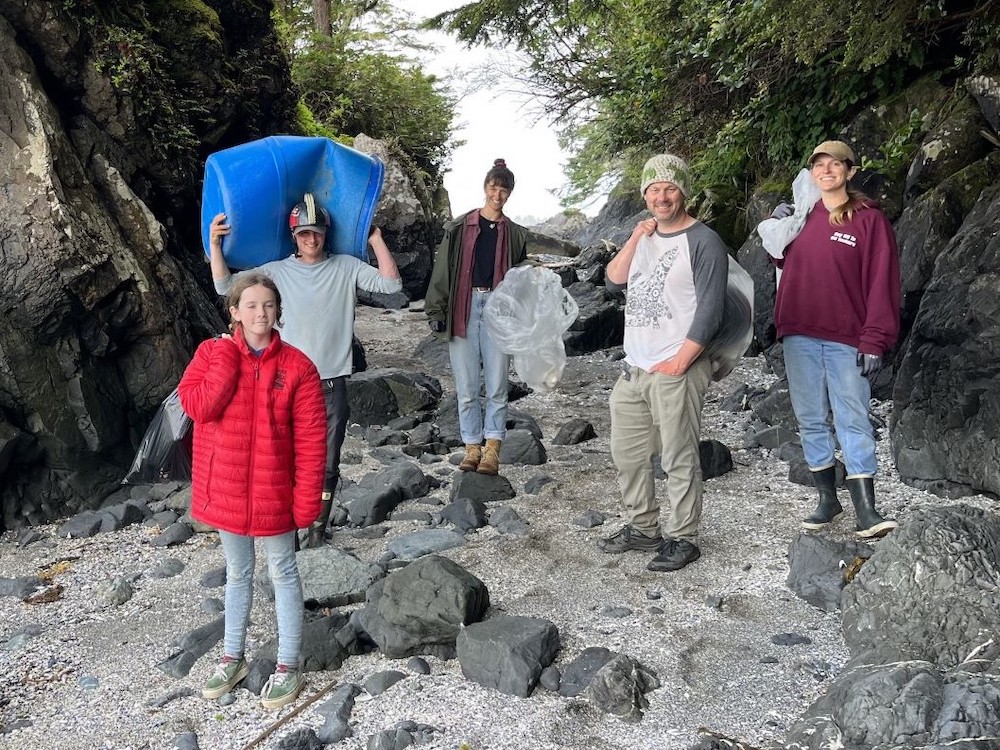







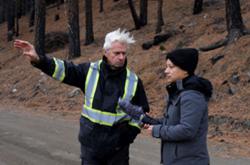




Tyee Commenting Guidelines
Comments that violate guidelines risk being deleted, and violations may result in a temporary or permanent user ban. Maintain the spirit of good conversation to stay in the discussion and be patient with moderators. Comments are reviewed regularly but not in real time.
Do:
Do not: